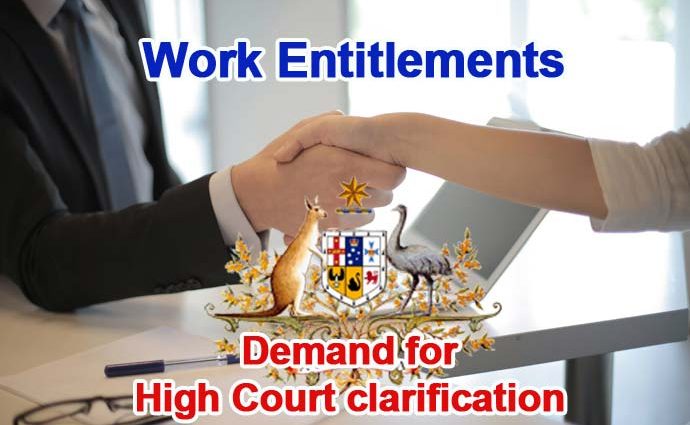A High Court appeal over a decision on worker entitlements that could see some casual employees claim permanent entitlements must end the crippling uncertainty facing small business owners especially leaving JobKeeper eligible employers especially vulnerable, according to Employsure, one of Australia’s largest workplace relations advisories.
The call comes as labour hire firm WorkPac seeks leave to appeal the Federal Court’s controversial decision to uphold leave entitlements for casual mine worker Robert Rossato in a case that has become known as the ‘double dipping’ decision. The ruling potentially paves the way for ‘regular and systematic’ casual workers to claim both paid entitlements as well as 25% casual loading, a situation that has been described as an economic ‘time bomb’ for employers.
The decision is especially concerning for casual employers receiving the JobKeeper wage subsidy, which is only paid to those businesses on the basis that their casuals are working regular and systematic shifts.
“Those employers have effectively admitted ‘I have a regular and systematic casual in my business’. Now, as a result of this decision, those same businesses are being told they have to pay permanent entitlements to their casual employees,” said Employsure Managing Director Ed Mallett.
“These are businesses who are already receiving the JobKeeper wage subsidy just to survive. If they now have to pay permanent entitlements as well as 25% loading to casual employees, then their JobKeeper life raft has just been sunk.
“What we want now is clarity. If this decision stands, it will lead to business owners having to shell out more money for casual workers than they were originally entitled to. While we wait for the appeal to be heard in the High Court, it is important for employers to understand whether this impacts their business, and what they can do to help protect themselves.
“Casual conversion may be an option for some employers, depending on the arrangements they have with their casuals. They should also review their relationship with their casual employees regularly. What may have started out as a casual relationship may over time become a more permanent one.”
A court can impose penalties of up to $63,000 per contravention for a corporation and $12,600 per contravention for individuals for wrongly classifying the employee as a casual when in fact they should have been classified as permanent.
What now for employers?
As a general guide, casual employment is characterised as unpredictable, irregular, intermittent and not pre-allocated, whilst permanent employment is characterised as an indefinite duration which is stable, regular and predictable.
Business owners are being encouraged to look at all aspects of how they operate when assessing their legal obligations. These include:
- Regularly reviewing their workforce to see if any long-term casuals could be considered a permanent employee
- Ensure the contracts or enterprise agreements of staff include a definition of what a casual employee is. Casual loadings should be identified in the contract as well as payslip, and made clear it is to be paid in lieu of paid leave and other entitlements
- Work with hiring staff to make sure they’re aware of the factors that could lead to a casual worker being deemed permanent for the purposes of entitlements.
If an employee turns out to be other than casual for the purposes of entitlements, an employer should consider:
- Determining the employees’ annual leave and personal/carer’s leave accruals based on the time they have been engaged on a permanent basis, and determine how many public holidays they should be paid
- Meeting with the employee to explain that their permanent status and issue the employee with a variation of contract to reflect this status.
- Ensure records of annual leave and personal/carer’s leave accruals are reflective of previous permanent employment and ensure they receive all National Employment Standards permanent employee entitlements moving forward.
This is a particularly complex area of employment relations and it is essential that businesses seek advice from trusted partners.
Moving forward:
Given the retrospective nature of the Federal Court’s decision, it may not be possible for businesses to protect themselves from past exposure. In these circumstances, it is recommended those that feel at risk seek formal advice.
Given that the issue of worker entitlements may discourage employers to hire staff, it is imperative that the High Court offers clarity and settles the issue once and for all and offers peace on all sides.
Similar Posts by The Author:
- BAPS temple vandalism critic Canadian MP Chandra Arya on Pannu’s radar
- Dutton asks Albanese to sack Andrew Giles
- Victorian Liberals and Nationals demand Royal Commission into CFMEU misconduct under Labor
- Peter Khalil welcomes more funding for emergency accommodation and support for women and children in Wills
- Dogged Vic government powering ahead with the Suburban Rail Loop

